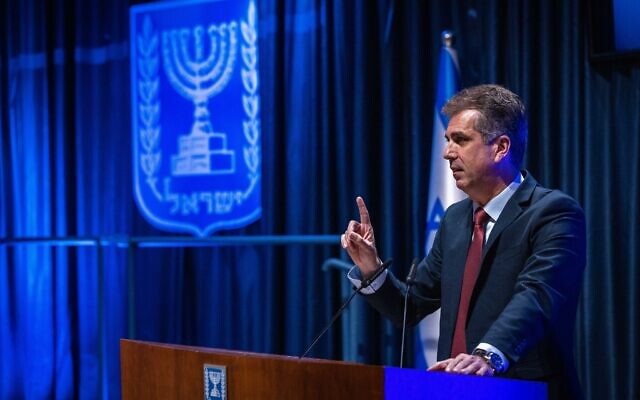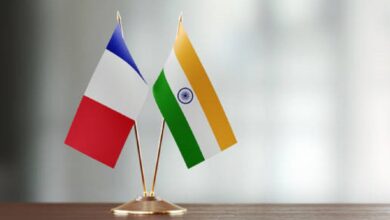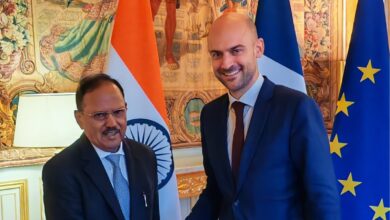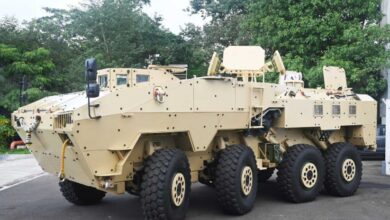Indo-Israeli Defense Relationship’s Vital Role In A Growing Partnership

- The two countries are happy to work together to make it easier for Indian people to come to work and be hired.
- The mobility pact will also help make sure that these workers' rights at work are protected while they are in Israel
Israel’s Foreign Minister Eli Cohen has said that India and Israel’s defense ties are a key part of their growing relationship and that his country is willing to create more platforms for joint research and development to find shared problems, talk about and find solutions to them, and even make them together. Cohen also said that trade between India and Israel has a lot of potential and that there is a strong desire to finish a free trade deal that will make the two countries’ economies even stronger.
“The defense relationship between India and Israel has been a key part of the growing friendship. Our relationships are built on three main things: the same beliefs, the same interests, and the same problems. He told THE WEEK magazine in an interview that Israel was one of the first countries to join the Make in India program and start joint projects with a manufacturing base in India because its defense cooperation was so well-coordinated.
“In Israel, we have no question that research and development helps the local economy grow. Because of this, we are ready to make more platforms for joint research and development (R&D) so that we can find shared problems, talk about them, find solutions, and even make them together. “This partnership is good for both sides,” he added.
Cohen said that joining the Make in India program was one of the most important steps in the relationship between the two countries.
“Israeli technologies and know-how are now being sent to India to be used in industry. Also, India still works with Israel as a key partner. Besides the ongoing talks between many government offices about agriculture, water, health, education, innovation, technology, and other things, there are a lot of other things going on, such as joint ventures led by our business sectors and other groups,” he said.
He also said that the continued growth of the relationship between India and Israel shows the strategic partnership between the two countries.
Cohen called the Haifa Port, which is a key link in the economic corridor between India, the Middle East, and Europe, a “strategic asset of Israel.” He said that the fact that it is now in the hands of an Indian company shows how much trust and friendship our business communities have in each other.
The biggest and most important port in Israel is in Haifa. The Adani-Gadot Group owns the Haifa Port Company. This company is in charge of running the port.
He said that the end goal is to make it easier for people to travel around and do business in the region. “We hope that our business communities will work together and form more partnerships like these in the future.”
Cohen also said that Prime Minister Benjamin Netanyahu and Prime Minister Narendra Modi are close friends and that the two countries have a strong strategic relationship that is good for both countries.
He hoped that Prime Minister Netanyahu would soon go to India, where they would talk about ways to improve ties between the two countries in many different ways.
“I think the FTA is about a lot more than just the amount of trade. We should talk about it with the long-term goal of good ties between the two countries in mind,” the minister said.
He also said that the Abraham Accords, which were signed in 2020 and were brokered by the US, have been a game-changer in moving Israel closer to the Gulf countries.
“The agreements have opened up interesting ways for countries and regions to work together on energy, sustainability, tourism, security, and a lot more. People are getting to know each other and doing business with each other better,” he said.
“Israel wants to continue the progress in the region that began with the accords and widen the circle of peace and normalcy,” he said.
He said that the first I2U2 meeting in the UAE showed that I2U2 has a lot of promise and opens up new doors.
“It brings together the strengths and resources of Israel, India, the United States, and the United Arab Emirates to find new ways to solve some of the most important problems of our time, such as food and water security, energy, and health,” he said.
When asked about the goal of the mobility pact that lets Indian workers work in Israel, the minister said that the goal is to make it easier for Indian workers to find jobs in Israel and to give them more job possibilities.
“The two countries are happy to work together to make it easier for Indian people to come to work and be hired. “The mobility pact will also help make sure that these workers’ rights at work are protected while they are in Israel,” he said.







Facebook Comments